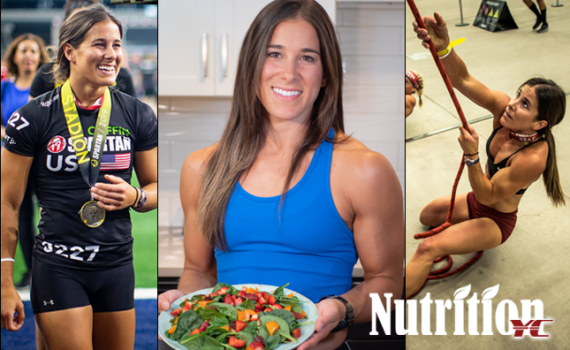
Ease Stress- 7 Ways to Prioritize Your Health (And Your Sanity!)
Category:immune health,nutrition,self-care,stress managementNow more than ever is the time to prioritize your health and make sure you’re taking care of yourself (and loved ones). At this point, we’re all quite familiar with the hygiene precautions from healthcare experts to avoid the spread of germs and most importantly, COVID-19, such as washing our hands, abstaining from touching our faces, and social distancing. These precautions can’t be emphasized enough and are essential to practice every single day; however, these actions aren’t our only lines of defense. By following these 7 steps, we can all make this situation a bit more bearable, and improve our health in the process.
1. Control the controllables. Acknowledge and accept that so much is out of our control. Stressing over these things will only result in more built-up stress that we are unable to resolve since they are beyond our control! Instead, expend your energy only on things that YOU have control over- like your emotions, interactions with others, how you spend your time and taking care of you and your family’s health.
2. Minimize stress. Stress increases cortisol levels in the body, which weakens the immune system, leaving us vulnerable and more susceptible to illness. Find an outlet for your stress that allows you to blow off some steam. For some, this outlet may be breaking a sweat in physical activity or the opposite- calming noise and thoughts through meditation. Try some breath work next time you’re feeling overwhelmed: 4-second inhale, 4-second exhale. Repeat as needed.
3. Combat emotional eating. It’s no secret that for many of us, emotions are often tied to food consumption. They’re called comfort foods for a reason- when we’re stressed, we turn to foods that provide us with the temporary serotonin boost to lift up our mood. Oftentimes these actions only lead to additional stress and feelings of guilt regarding our food choices, and the vicious cycle repeats itself. If you find yourself stress-eating, it may be helpful to try eating smaller meals every few hours throughout the day. Logging your food intake, talking to a registered dietitian, and/or reading about intuitive eating are other options to consider. Finding activities away from the kitchen to keep you preoccupied (like reading, working on a puzzle, or going for a walk) can help take your mind off of food and serve as an alternative when dealing with strong emotions.
4. Get fresh air and sun. Most of us would agree there’s nothing quite like fresh air and sunshine to help us feel rejuvenated, and science agrees. Our bodies rely on UVB waves from the sun to convert cholecalciferol (the inactive form of vitamin D) to active vitamin D. Many vitamin D-regulated genes are involved in immune function; in fact, there are vitamin D receptors on the surfaces of all white blood cells! Experts say heat and UV rays have the potential to kill viruses. Fresh air is also just as important in preventing the spread of viruses, as they often thrive in enclosed areas. If you can’t get outside, at least open a window or two and keep the blinds open for some sun action.
5. Stay active. Exercise promotes circulation which allows blood and other vital nutrients to move throughout our body, including important immune system substances. There are more than enough workout ideas on YouTube to get you through a few weeks. Feel free to get creative with your at-home workouts (using grocery bags of canned goods or water jugs for weights), or go to your local playground or park for some outdoor recreation and movement. Yancy Camp is currently offering a 1-month free membership if you’re looking to follow a consistent workout regimen tailored to your goals.
6. Hydrate, hydrate, hydrate! Our bodies are made up of anywhere from 50 to 65% water. Therefore, it should come as no surprise that water is involved in every function of the body. While the human body is adept at managing its water distribution during times of need, dehydration puts additional strain on our organs and can have some serious consequences if prolonged. As a general rule of thumb, aim for a minimum of half your body weight in ounces of water. If consuming other liquids throughout the day, add those on top of this recommendation, as some drinks (like caffeine) have diuretic effects.
7. Prioritize Sleep. Sleep is an essential component of good health. When we sleep, there are a lot of biological processes that take place which are essential to our ability to survive and thrive. The quality and quantity of our sleep not only affects things like our mood, hunger and focus, it also affects our ability to repair muscle, consolidate memories and produce hormones (among many others). Experts recommend a minimum of 7 hours of sleep for optimal health and functioning. Creating a consistent and relaxing bedtime routine to wind down from the day can help improve sleep quality. This can include avoiding technology and screen time at least an hour before bed, reducing exposure to bright light, reading a book, and/or sipping on a calming bedtime tea. Establishing a regular bedtime and honoring it can help as well.

